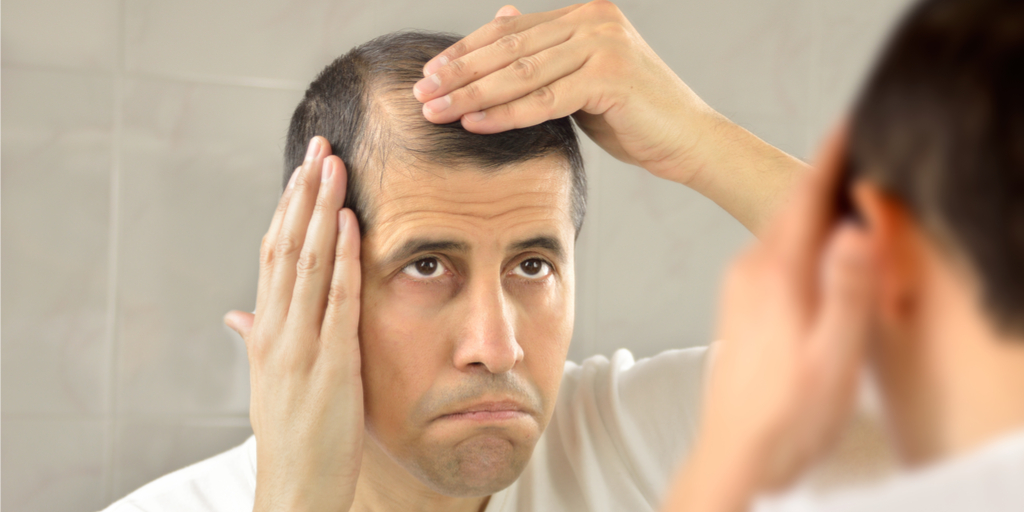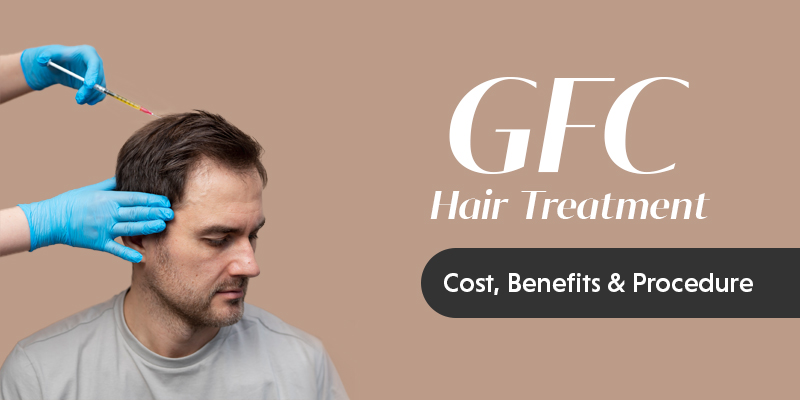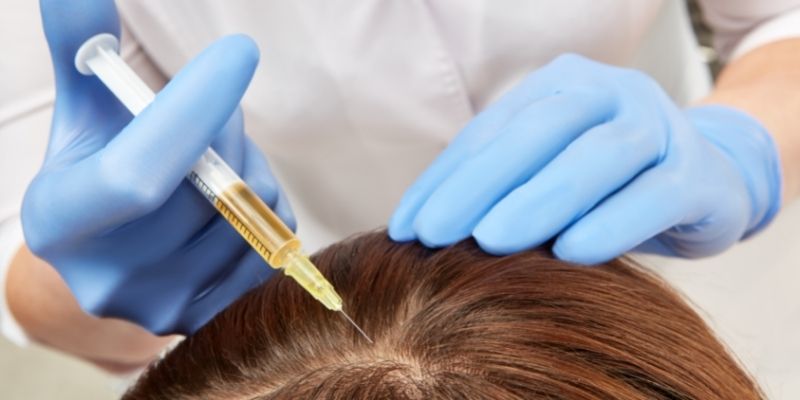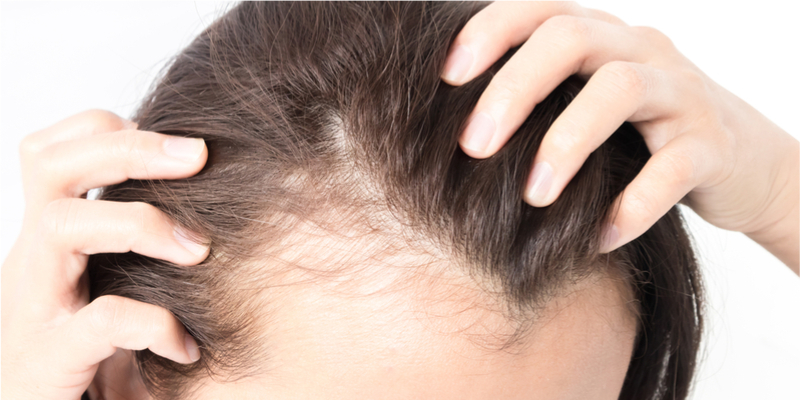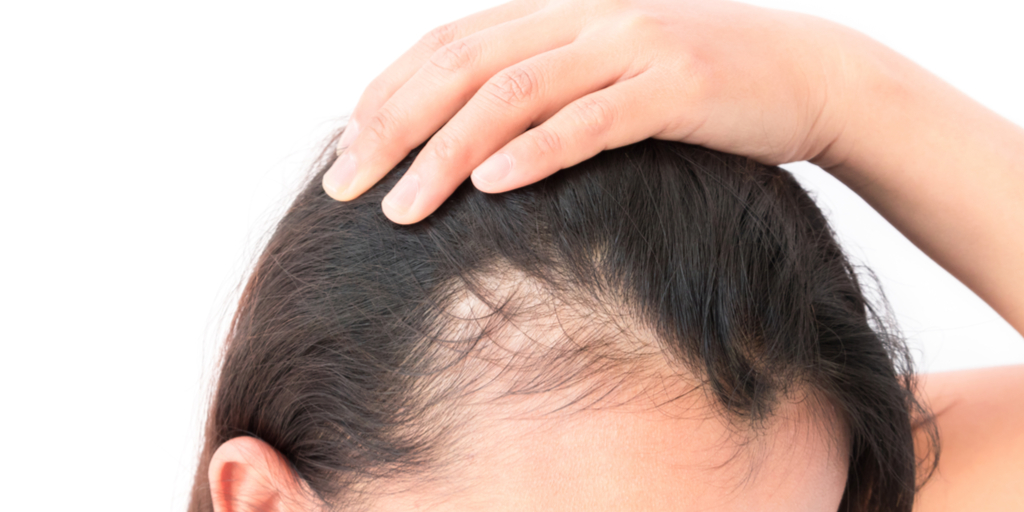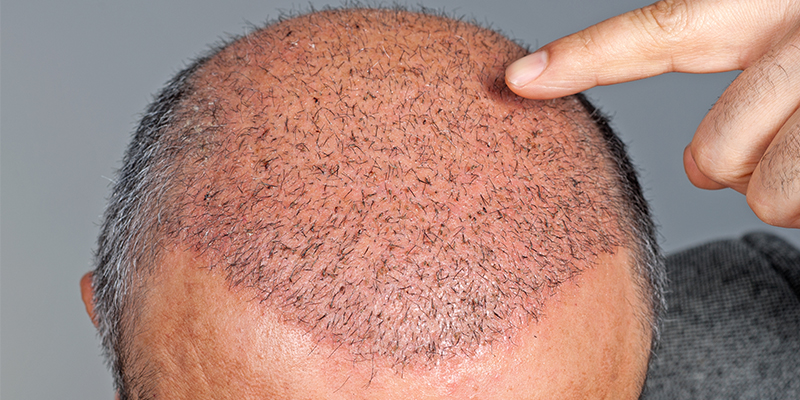DHT Hair Loss Causes, Treatments, and Prevention
Hair loss is a common problem faced by both men and women, and it has a histrionic impact on our lives. Hair loss affects most men at a certain point in their lives, and for women also there are varying degrees of hair loss felt. There is a steroid and hormone in our body, which has an influential role in hair loss. It is called DHT or dihydro-testosterone. The levels of DHT in our body can have adverse effects on our hair growth, causing large amount of hair fall. It is thus important to understand; how DHT causes hair loss and how to control DHT to stop hair loss effectively.
What Is DHT And What Does It Do?
DHT (Dihydro-testosterone) is an androgen (sex hormone), which is synthesized by our body. It is an active form of testosterone and is produced by the 5α-reductase enzyme. The hormone is mostly produced in the prostate, testes, adrenal glands, and hair follicles. Responsible for male characteristics DHT level also plays a crucial role in hair growth.
When the level of DHT crosses a certain threshold, it can lead to Androgenic Alopecia. It is a kind of hair loss that results in bald patches, besides the prominent thinning of hair. In this condition, hair follicles become sensitive to the increased level of DHT. Apart from hormonal changes, hereditary factors can also result in DHT hair loss.
What Is The Link Between DHT And Pattern Baldness?
In order to understand how to fix DHT hair loss, we first need to know the relationship between DHT hormone and hair loss. DHT is a highly active and modified form of testosterone. Therefore, it doesn’t matter how much testosterone is there in your body. What matters the most is how much amount of testosterone is converted to DHT. Even though males have more testosterone in their body, females have some part of this hormone as well. Therefore, both male and female can be affected by DHT hair loss.
Nevertheless, it has been observed that male pattern baldness (androgenic alopecia) is directly linked to DHT. Due to this, hair fall becomes prominent in genetically-susceptible areas like the front and top of the scalp. Unlike male baldness, the female pattern can be a bit complicated. In this, the low level of estrogen can trigger DHT female hair loss.
What Is The Role Of DHT In Hair Loss?
DHT hormone and hair loss have a complex relationship. In order to learn what is DHT hair loss, it is important to understand the science behind it. Our hair follicles are made of dermal papilla cells, which are responsible for hair production and growth. These papilla cells are androgen receptors and are embedded in the scalp. DHT has a tendency to attach itself to these receptor cells.
Once the DHT is attached to these cells, it inhibits the flow of essential nutrients (vitamins and minerals) to the follicles. Without getting the essential nutrients, the resting phase (of hair cycle) of these follicles is increased. Additionally, the new hair shafts are not developed in an optimum manner. As a result, hair shafts become thinner and lead to bald patches. Since DHT causes hair loss, we need to take the assistance of the best DHT blockers for hair loss to treat it.
Can You Remove DHT From Your Scalp?
DHT is a part of our body and getting rid of it entirely is tough. Nevertheless, there are advanced DHT hair loss treatments that can remove DHT from your scalp to a great extent. There are a few medicinal products, like hair loss DHT blocker that can help you do the same. Dermatologists can also perform a sebum-based plaque technique to remove DHT from the scalp. After that, the hair follicles are unblocked and nourished to develop stronger hair. Since the body keeps developing DHT, it is important to identify its triggers or take the right medicines to stop it from affecting the scalp further.
Treatments For DHT Hair Loss
Since DHT hair loss is a complex phenomenon, a personalized approach is mostly followed by experts. Firstly, patients are recommended to get a DHT test for hair loss. After getting the relevant results and observing the DHT hair loss symptoms, a handful of these treatments are suggested.
- Platelet Rich Plasma (PRP) Hair Treatment – While PRP does not directly treat DHT hair loss, it is mostly combined with other approaches. Mostly, doctors first use DHT blockers and medicines to clear the scalp. Afterward, to increase the growth of hair in less time, they follow a dedicated PRP treatment. This is because PRP does not have any correlation with DHT and is recommended due to its low side-effects.
In the PRP hair loss treatment, platelet-rich plasma is prepared from our blood by following a centrifugal process. When it is injected into our scalp, it provides essential nutrients to our follicles, which results in thicker hair.
Also Read: What Is PRP Hair Treatment & How Does It Work?
- Medicines to control DHT levels – Most of the doctors start the DHT hair loss treatment by providing the perfect medicines to control its production. There are a handful of FDA-approved medicines (like Propecia) that doctors prescribe according to the amount of DHT present in our body. They inhibit the production of 5α-reductase enzyme, which is responsible for converting testosterone into active DHT components. These medicines can decrease the DHT level in our body upto 90%. Therefore, you should only take these medicines after getting a dedicated diagnosis from an experienced doctor.
- Hair Transplant – Hair transplant is a permanent DHT hair loss treatment. Since it is an invasive approach, it comes with nominal risks as well. On the basis of its technique, a hair transplant can be of different types. In most of the transplant surgeries, healthy hair strands are taken from the donor area (side or back of the scalp) and replanted to the bald patches. FUE (Follicular Unit Extraction) is one of the most common approaches to treat DHT hair loss.
- Topical DHT Blockers – Besides oral medicines, there are some topical medicines for DHT blocking (like serums and gels). Though, one should only start using a DHT blocker after being sure that DHT is the main reason for their hair loss. You can also find DHT blocker shampoos or DHT blocker supplements in the market as over-the-counter medicines. To identify the best DHT blocker for hair loss, you should visit a dermatologist.
- Ketoconazole Treatment – A lot of times, DHT and fungal infections can together result in a rapid hair loss. If that is the case, then your doctor can recommend a Ketoconazole treatment. It is an anti-fungal drug that clears our hair from unwanted infections. It has been observed that the drug can also control the level of DHT in our scalp. Therefore, it is mostly mixed with a DHT blocker to clear our scalp. Later, a hair regrowth treatment is followed for a DHT hair loss reversible solution.
- Biotin Treatment – As stated above, DHT can inhibit our follicles from absorbing the essential nutients for hair growth. After clearing your scalp from excessive DHT, a biotin treatment can help your follicles regain the lost nutrition. In this way, your hair can grow again by following an ideal hair growth cycle. The technique is mostly implemented with DHT blockers for female hair loss.
Also Read: Biotin For Hair Growth – Benefits & Side Effects
What Are The Most Effective DHT Blockers?
DHT blockers can be found in both, natural sources as well as supplements. Ideally, Vitamin B6, Vitamin C, and Vitamin E are known for their excellent properties that can naturally decrease the production of DHT. Spironolactone, Azelaic acid, and eta-sitosterol are also known for their anti-androgen properties that can block the production of DHT. Besides that, drugs like Avodart or Propecia can work as an excellent hair loss DHT blocker. It is recommended to consult an experienced dermatologist for more.
FAQ’s
Is DHT is the only cause of balding?
While DHT can be a primary factor for male pattern baldness, it is not the only cause behind it. Furthermore, DHT and hair loss in females have a complex relationship that can be triggered by tons of other factors. A change in diet, fungal infection, surrounding environment, stress, pressure on hair, etc. can be some other reasons for hair loss.
Can lowering your DHT level fight hair loss?
If you are experiencing a DHT hair loss, then the decreased level of DHT in your scalp can certainly help. After clearing DHT from the scalp and undergoing a hair regrowth treatment, it is important to regulate the production of DHT. This will also help with DHT hair loss prevention in the long run.
Is DHT hair loss reversible?
Yes, a DHT hair loss treatment can help you get your lost hair line. Though, it can only happen if you act promptly. If your hair follicles are completely destroyed due to the lack of nutrition, then you would have limited options for hair regrowth. An experienced dermato-trichologist may be able to help you further.
Does PRP increase levels of DHT that will cause hair loss?
No, PRP does not increase the level of DHT in our scalp. This is because the platelet-rich plasma only consists of carefully extracted growth factors. The plasma doesn’t affect the level of DHT, it simply nourishes the scalp, resulting in hair re-growth and restoration.
DHT hair loss can be a bit tricky to understand, you must visit an experienced dermatologist for detailed investigation. If controlled in time, DHT levels can be prevented from causing any further hair loss.


